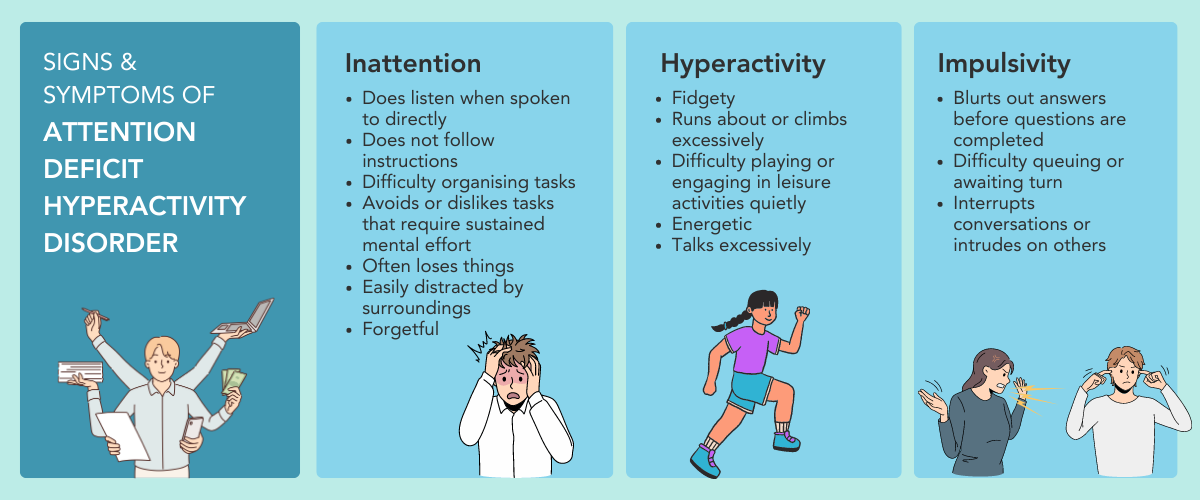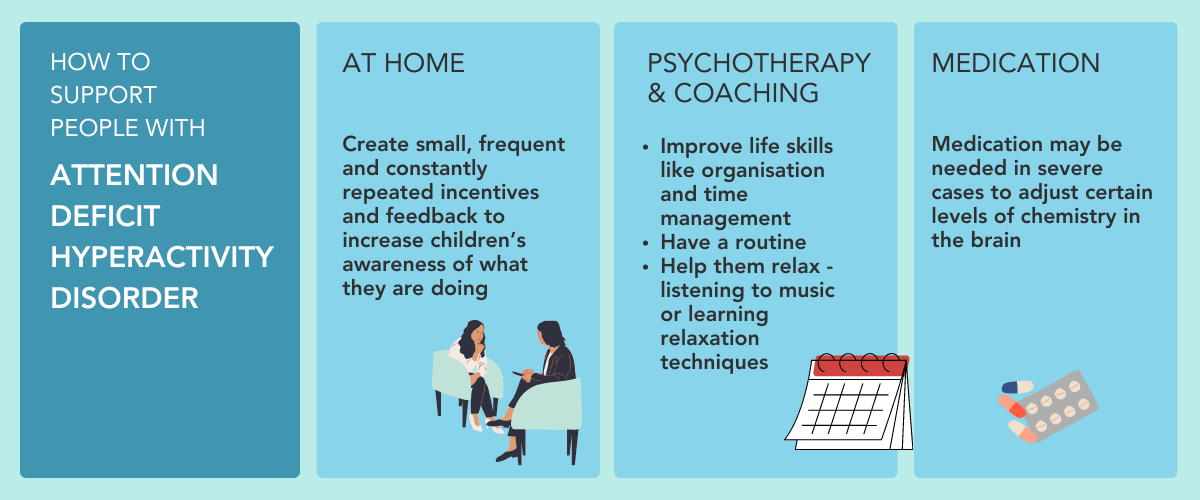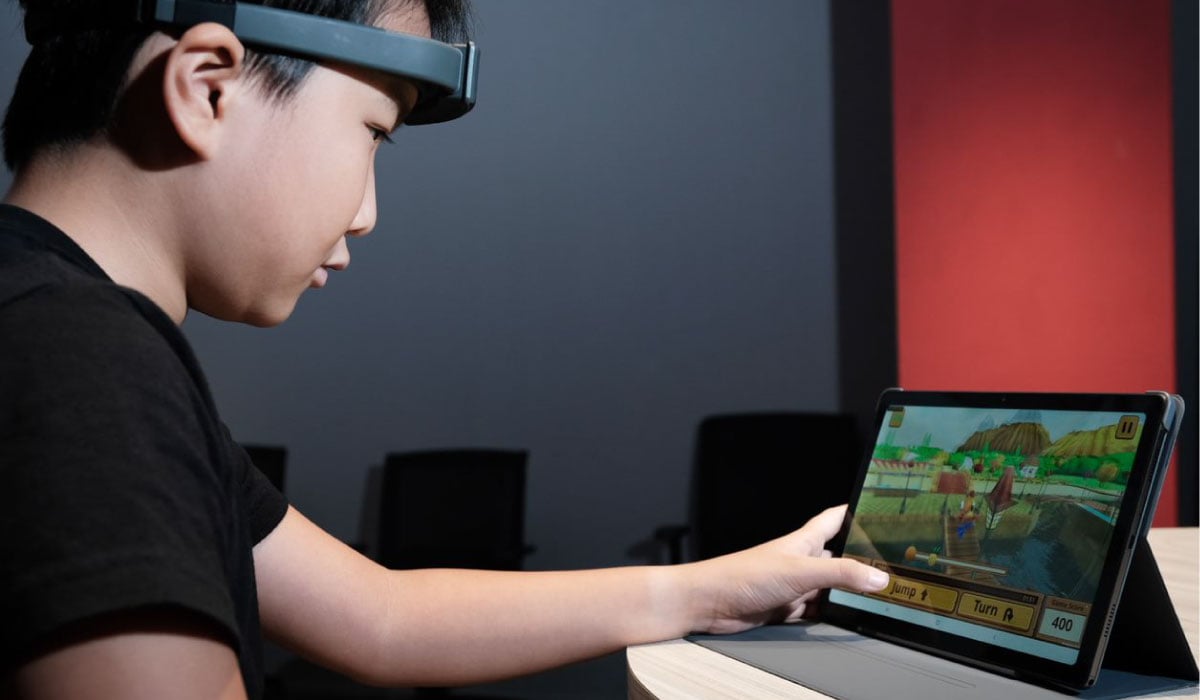It is quite normal for children to be active, inattentive and impulsive. However, children with ADHD struggle in three areas, namely: inattention, impulsivity and hyperactivity. Some of the symptoms in each area include:
- Inattention: Faces difficulty listening, following instructions, organising tasks and carrying out tasks that require sustained effort, loses things often and appears forgetful.
- Hyperactivity: Fidgety, runs about or climbs excessively, unable to play or engage in leisure activities quietly, and talks excessively.
- Impulsivity: Blurts out answers before questions are completed, faces difficulty queueing or waiting their turn, and interrupts conversations.

It is worth noting when these behaviours:
- Become severe and persistent over time
- Become pervasive and occur consistently all the time, whether it is at home or in school
- Impair their ability to make friends, get along with others or perform their tasks in such an instance, the child may be suffering from ADHD.
While it is possible for a child to grow out of ADHD, it is difficult to predict when and if this will happen. As such, the main immediate goal is to help manage ADHD and prevent the child from missing out on important life aspects such as developing peer relationships or in their academic learning.
Parents often find themselves feeling stressed from caring for their children who have ADHD. It is vital that they find support from other family members and the school. Parents can work with teachers and school counsellors to assess the child, and discuss how to best support them. Parents can also directly reach out to a psychiatrist or IMH’s multidisciplinary community mental health team REACH (Response, Early Intervention and Assessment in Community Health) to explore treatment and management strategies.
Adults, too, can have ADHD. Their challenges in inattention and impulsivity leading to problems at the workplace in terms of organisational skills, time management and their ability to hold their jobs. They may experience other challenges such as low self-esteem, personality difficulties, and are also more likely to suffer substance abuse problems and depression.
ADHD is a developmental disorder that begins from an early age and can continue into adulthood. Hence, it is unlikely for symptoms to suddenly appear in adulthood. Symptoms of ADHD, in particular hyperactivity, is less seen in adults. It is likely that some of the symptoms of ADHD do gradually improve with age, and with proper treatment and management.
There are many ways to support someone with ADHD, namely through training carers, medication, psychotherapy and coaching to improve their life skills such as organisation skills, time management and interpersonal skills.
 There is support available for ADHD. They may come in the form of:
There is support available for ADHD. They may come in the form of:
- Psychotherapy and coaching to improve life skills like organisation and time management, as well as to adopt a relaxation routine
- Home-based interventions such as small, frequent and constantly repeated incentives to build awareness in children
- Medication to help adjust brain chemistry in severe cases
To make an appointment to see a doctor, please call 6389 2200.
Click here to find out more on IMH's services for ADHD. To have a better understanding on ADHD, click here to watch a video on the disorder.
Cogo is a complementary home-based attention training programme based on Brain-Computer Interface technology. Jointly developed by A*STAR’s Institute for Infocomm Research, Institute of Mental Health, and Duke-NUS Medical School in Singapore, this solution aims to improve inattentiveness in children aged 6 to 12 years through a 24-session guided game that is paired with Neeuro’s EEG headband "SenzeBand 2".
For more info on Cogo, click here.

Photo credit: Neeuro